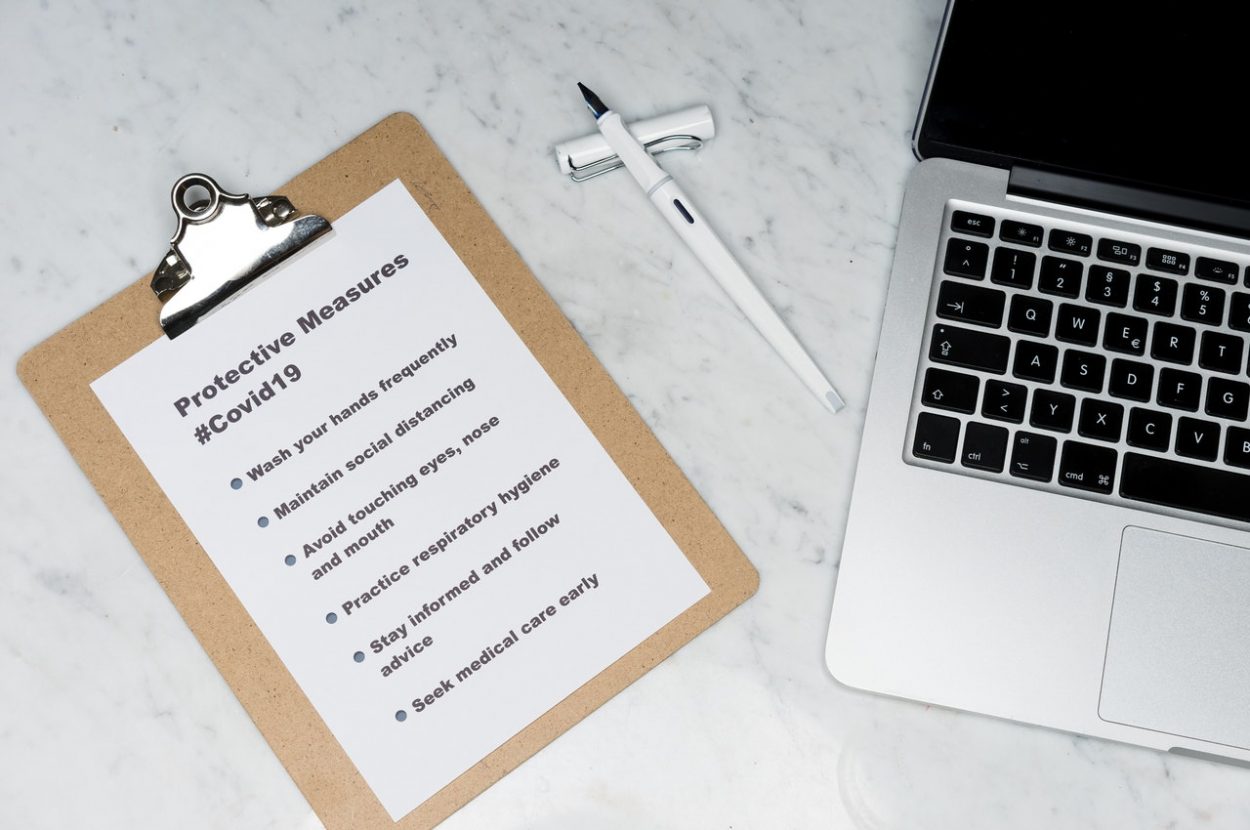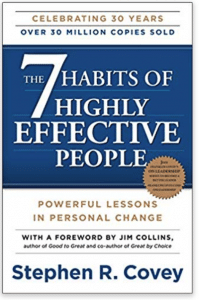Live a healthy life. It’s something that most of us want, but it eludes way too many of us. We spend a lot of time worrying about things that are outside of our control. As a result, we grow frustrated. We get angry. Maybe even feel sorry for ourselves. It’s a constant battle, isn’t it?
It is a battle, but it’s a righteous one. Ever since I retired early, I’ve had a lot of time to think. About everything. To really hone in on what exactly it takes to live a happy and healthy life – not just for me, but for a lot of us.
I think I’ve found the answer, and it boils down to 5 basic principles of health.
Before we get into it, let’s be clear. Each of these principles stems from one uber important concept:
Your choices matter.
“I am not a product of my circumstances. I am a product of my decisions,” wrote Stephen Covey, author of the highly influential book, 7 Habits of Highly Effective People. If you haven’t read that book, read it. Now.
If you live in the first world, you probably have much more control over your life than you think. We have choices to make each and every day, and the more proactive we are with our choices, the better prepared we’ll be to make choices that are consistent with being happy and healthy.
We can choose to spend more time with our kids instead of those weekly happy hours with coworkers. Or, take extra time to do things right rather than hurrying through everything we do.
We can earn extra money from home, take a class to boost our skills, ask for a raise. Or, just take the time to sit and think. Those of us who take time for ourselves tend to be happy people.
Happy and healthy every damn day.
5 Rules for Living a Happy and Healthy Life
These five rules are critical to my healthy life and happiness, and I’m going to bet they are critical to yours as well. Once we take full control over our ability and freedom to make choices, each of these rules will be easy to master.
Rule #1: Never compare yourself to other people in an unhealthy way – yes, there’s a difference!
Comparisons have a way of making us feel inferior. Why? Because there will always be people who are doing it better than us. Leaner than us. More muscular. Better looking. Smarter.
And, we tend to focus on our shortcomings when we compare. We match our weaknesses with their strengths and instantly draw ill-conceived conclusions that we are, as a result, inferior people. Because we’re not as fast or as smart. We don’t drive as nice of a car, or we don’t carry a purse as elegant as she does. Or a briefcase as nice as his.
But, here’s the thing: When we compare our weaknesses to someone else’s strengths, we always lose. And, we never stop to consider the fact that they have weaknesses too. We all do. That’s what makes us human. No one’s perfect, not even that guy who drives a $900,000 Porsche, or that woman who’s yanking her credit cards out of a $15,000 handbag.
Don’t give yourself a reason to feel bad about yourself. Comparisons are ugly.
But wait – can’t we compare ourselves to others in a healthy and motivating way? Yes, in fact, you can. Comparisons can be healthy.
When we use someone else’s strength as a way of inspiring us to do better, that’s healthy. It’s non-judgmental. We are “looking up to them” rather than comparing our weaknesses to their strengths.
For example:
- striving to match a gym partner who lifts heavier weight than you
- using your straight-A brother/sister to motivate you to study harder
- trying to equal your favorite speaker by giving smoother, better-researched and more commanding presentations
We can make healthy comparisons by looking deeper than the surface-level success. We envy their position, but we also use their success as a goal marker. A specific, tangible place where we want to be.
When we’re motivated by other people’s successes, comparisons become healthy. And, healthy comparisons are good.
Rule #2: Surround yourself with happy and uplifting people each and every day
It’s said that you’re the average of the five people whom you hang around with the most. Personally, I think it goes beyond that. Our interactions with people every single day have a profound impact on our mood for that day.
Think about it.
- when people around us are angry, we tend to get angry
- when people around us are happy, we smile; laugh
For example, you’re waiting in line at the grocery store and the person in front of you is happy. Clearly, just happy. They chat with you for a few minutes as they wait. They smile, which in turn makes you smile. You leave the grocery store just a bit happier. This happens to me all the time.
That interaction with someone whom you’ve never met before, and likely will never see again, just impacted your day.
Of course, it happens in the reverse, too. Someone cuts you off on the roadway and you immediately sink into madness.
“That asshole! It’s like he wants to get into an accident!”
While we can’t control everybody whom we interact with, we can pick and choose our friends. We can choose to hang around with people who are happy and uplifting, not those people who constantly bring us down, who are upset over something. The constant complainers. The perpetually angry.
I got news for you: The people who are perpetually angry want to be angry.
It’s a high for them. But like most highs, it’s an unhealthy one.
Don’t let the negativity that some people desire pull you into a spiral of hate and anger. Yes, you CAN control that.
Rule #3: Perpetual anger rarely solves important problems
I talked about this before, but perpetually angry people enjoy being angry.
It’s psychology.
“A person or situation somehow makes us feel defeated or powerless, and reactively transforming these helpless feelings into anger instantly provides us with a heightened sense of control. . . . In a sense, [anger] is every bit as much a drug as alcohol or cocaine,” wrote Dr. Leon Seltzer in Psychology Today.
Naturally, we all get angry sometimes. But for those who always seem to be angry or upset, it’s because they want to be. And, anger almost never helps. It clouds our judgment and compromises our immediate decision-making due to the negative emotions of being angry.
It also makes us feel like the victim, kidding ourselves into believing that it’s not our fault. It’s never our fault. Always somebody else’s. We do no wrong.
It’s them. It’s society.
Let’s get real: We all make mistakes. Playing the victim card solves nothing other than giving us temporary comfort. The problem is temporary comfort doesn’t solve our problems. It only exacerbates them.
Rule #4: Focus on yourself
It’s okay to be selfish. There, I said it.
Selfishness is good. It means we put ourselves above everyone else. We focus on what is best for us before we think about those around us. Although I may sound like a jackass, prioritizing ourselves over others is good. It’s natural.
It’s also how we improve.
Of course, there is such a thing as “bad selfish”. If you only care about yourself and intentionally screw over those around you, that’s bad. As with many good things, it can be taken too far. But, I’m not talking about bad selfish.
When used right, selfishness is extremely healthy.
I’m sure we’ve all heard this phrase on an airplane: “Put your own oxygen mask on first before helping the person next to you”.
We hear this every damn time we fly. Why? Because you won’t be of much help to your neighbor if you’re dead. Don’t let yourself feel guilty or politically incorrect because you think of yourself first. You should focus on yourself.
Your interests come before the interests of your neighbors. Always.
The reason is remarkably simple: Thinking about number one first puts us in a position to not only help ourselves, but also those around us – if we choose to do so. You can’t be much help to others if your emotional, mental, physical or financial position in life is compromised. It’s true, every time.
I don’t care how selfless that you think you are. Your influence and ability to help those around you will grow when you stand upon a solid foundation of rock. Dishing out pieces of bread to the congregation while sinking in quick sand isn’t helping anyone.
Don’t believe selfishness is bad. It doesn’t have to be.
Rule #5: Live every day by your own moral code
We all have our own moral codes. Each and every one of us.
But, we all don’t necessarily live by them. As human beings who want to fit in, we tend to live by other people’s moral codes as much as we do our own.
We ask ourselves questions like, “What will so-and-so think of me if I do this?” Or, “I’m going to look like a total dick unless I say yes to the invitation”. We make decisions based on other people all the time.
Yes, all the time. And, we all do it. Every last one of us.
I’ve learned – the hard way, that happiness and living a healthy life increases substantially when we focus on our own living standards.
It’s because our moral codes directly affect the kind of person we are. When we live by other people’s standards, we lose sight of us. Of who we are. We no longer understand what we stand for. What’s most important to us.
Our purpose in life.
Believe me when I say that living only by your own moral code is extremely difficult. It’s not something that just happens. We need to work on that, over and over again. It takes consistent reinforcement. It’s not a plateau that, once we reach it, we’re there.
It’s a constant uphill battle, but one that we need to take.
Are you living a healthy life? If so, what’s your secret? If not, use these rules to get started. Remember, it takes time. Nobody is perfect. And, this isn’t about judgment or beating yourself up.
It’s about improving your life one step at a time.


